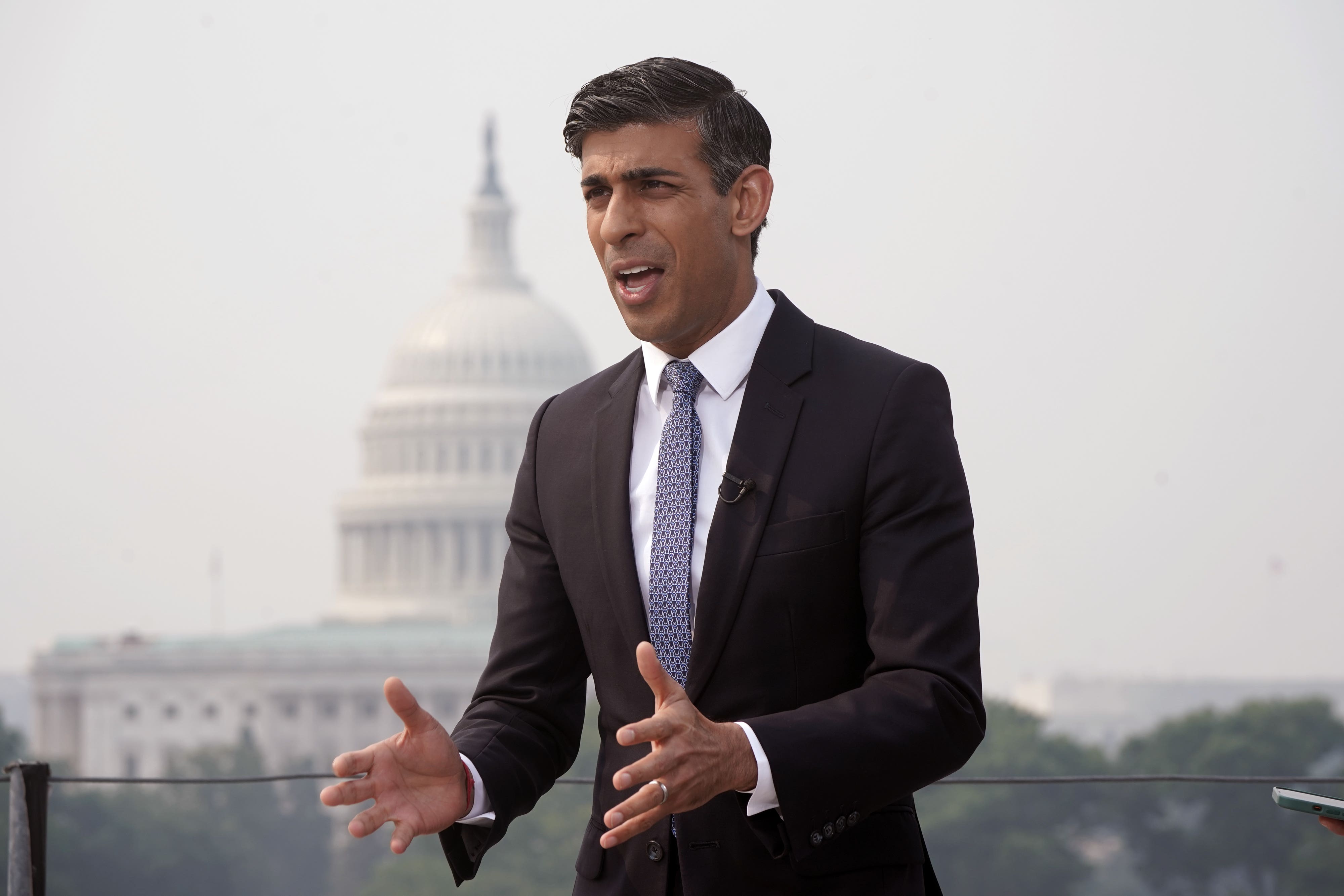Ukraine’s long-term future to be on agenda at Sunak and Biden meeting
The Prime Minister said there was still no ‘definitive answer’ about whether Russia was responsible for the destruction of the Kakhovka dam.

Your support helps us to tell the story
From reproductive rights to climate change to Big Tech, The Independent is on the ground when the story is developing. Whether it's investigating the financials of Elon Musk's pro-Trump PAC or producing our latest documentary, 'The A Word', which shines a light on the American women fighting for reproductive rights, we know how important it is to parse out the facts from the messaging.
At such a critical moment in US history, we need reporters on the ground. Your donation allows us to keep sending journalists to speak to both sides of the story.
The Independent is trusted by Americans across the entire political spectrum. And unlike many other quality news outlets, we choose not to lock Americans out of our reporting and analysis with paywalls. We believe quality journalism should be available to everyone, paid for by those who can afford it.
Your support makes all the difference.Rishi Sunak has said that he and US President Joe Biden would be discussing the long-term security of Ukraine when the pair meet in Washington.
The Prime Minister, who is due to visit the White House on Thursday, said there was still no “definitive answer” about whether Russia was responsible for destruction of the Kakhovka dam in Ukraine but suggested it would fit a “pattern of behaviour” by Vladimir Putin’s forces.
More than 2,700 people are believed to have fled flooded areas on both the Russian and Ukrainian-controlled sides of the river.
It is not clear whether the true scale of the disaster has emerged yet in an area that was home to more than 60,000 people.
If intentional, this attack would represent the largest attack on civilian infrastructure during the war. It's harmed tens of thousands of people
It also remains unclear what caused the collapse of the dam, with both Kyiv and Moscow blaming each other for the destruction.
Mr Sunak told the BBC that if the damage caused was intentional, the UK would “work to hold those responsible to account”.
“Our military and security services are still conducting their investigation, so we don’t have a definitive answer on who was responsible.
“But if it does turn out to be Russia, I think it would fit with a pattern of behaviour throughout this war, which is where Russia as an active strategy deliberately targeted civilian infrastructure.
“If intentional, this attack would represent the largest attack on civilian infrastructure during the war. It’s harmed tens of thousands of people.”
Referencing the UK’s support for the International Criminal Court, Mr Sunak said: “We will also work to hold those responsible to account as we have been doing.”
The breach in the dam has been described as an “ecological disaster”, with scenes emerging of flooded communities across the region.
Downing Street earlier said that humanitarian aid to Ukraine will be diverted to the area affected by the damage.
Mr Sunak indicated the long-term future of Ukraine, and not just the immediate response to the latest disaster, would be on the agenda when he travels to the White House.
“I’ll be working closely with President Biden to make sure that we continue both of us supporting Ukraine with the resources it needs to defend itself in the here and now, but also thinking ahead to what kind of longer-term security arrangements and agreements we can put in place,” he said.
Pressed for specifics, he said: “Those are the conversations that I’ll be having with the President tomorrow.
“Because what we want to do is make sure that Ukraine can not just defend itself today, but for years into the future. That will also act as a deterrent to Russia for aggression and convince it that there is no point in persisting with this illegal and unprovoked war.
“We need to send a strong signal to Russia that this type of aggression will not go on unmet with a response and I think it’s important that the UK plays a leadership role in that as we have been doing.”
The UK on Wednesday announced that it would be providing an additional £750,000 of funding to the International Atomic Energy Agency to support its work in Ukraine.
Corinne Kitsell, the British permanent representative at the agency, said that the new UK funding would back the body’s “vital work”.
“Russia’s barbaric attacks on Ukraine’s civil infrastructure and its illegal control of Zaporizhzhia Nuclear Power Plant runs contrary to all international nuclear safety and security norms,” she said.
“It claims to uphold nuclear safety standards, but its actions say otherwise.
“I commend the work of the IAEA’s staff in Ukraine and I am pleased that the UK’s additional funding will help to facilitate its vital work, particularly given the additional risk posed by the destruction of the Kakhovka dam.”